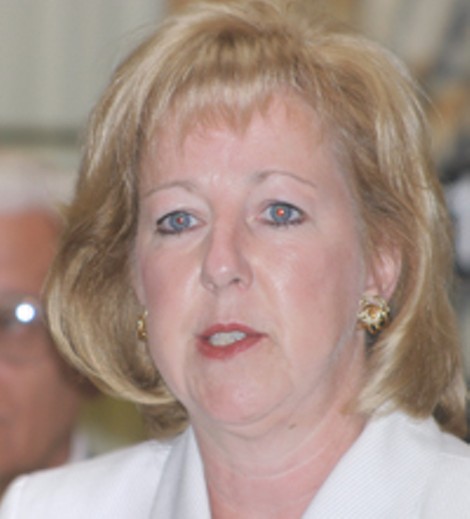Metro ink - 12-06-06
[
{
"name": "500x250 Ad",
"insertPoint": "5",
"component": "15667920",
"parentWrapperClass": "",
"requiredCountToDisplay": "1"
}
]
AN ARMCHAIR ARCHITECTURAL TOUR
The Landmark Society of Western New York's newest offering, "Historic New York: Architectural Journeys in the EmpireState," is more than your typical, pretty coffee-table book. It's also a tour guide to more than 100 architecturally and historically significant sites throughout the state.
Five years in the making, the 225-page book captures the structures through photographs by Andy Olenick and accompanying captions by Richard Reisem. (The duo also paired up for earlier Landmark Society books: "Erie Canal Legacy," "Classic Buffalo," and "200 Years of Rochester Architecture and Gardens"). In the midst of blustery winter, you can stroll through gardens at the Rockefeller Estate, soak in the mineral springs at Imperial Baths, daydream yourself into the murals at Schuyler Mansion, or plan redecorating projects inspired by the simple Shaker designs of Oneida Community Mansion House or the elaborate Victorian Morgan-Manning House. An index in the back organizes the sites into easy-to-navigate regions.
Although "Historic New York" is the culmination of the work on the previous three books --- this one covers the entire state, while the others focused on regions --- past photographs were used only when absolutely necessary, says photographer Olenick.
The book is priced at $49.95 and is available at the Landmark Society, 133 South Fitzhugh Street, or through its website at www.landmarksociety.org. (The book is on sale for $10 off until December 31.) It's also available locally at all area Barnes & Noble book stores, The Center at HighFallsVisitorCenter and Museum, and Parkleigh.
Reisem and Olenick hold book signings Thursday, December 7, at Barnes & Noble Greece (330 Greece Ridge Center Drive) and Friday, December 8, at Barnes & Noble Pittsford (3349 Monroe Avenue), both at 7 p.m. To view sample pages go to www.landmarksociety.org/historicny.
--- Dale A. Evans
WATER PLANT WARS
It may have been a weekday afternoon, but the November 30 public hearing on a proposed new water plant was packed.
More than 50 people filled a room at PenfieldTown Hall to comment on the plant, which the Monroe County Water Authority plans to build in Webster. The authority, which has a plant in Greece, says it needs another one to improve the security and reliability of the water system.
The hearing was hosted by the State Department of Environmental Conservation. But while it was intended to address issues the DEC will consider before granting permits for the project --- like wetlands and LakeOntario water use and quality --- the hearing became a forum for other, larger issues.
At the outset Richard Metzger, the Water Authority's chief engineer, discussed the authority's reasons for wanting the plant. While the county's population is flat, he said, the number of households has increased and demand for water is rising.
And anticipating an objection that would be raised in the hearing, that the plant will encourage sprawl, Metzger countered: "This project does not extend distribution service." Rather, it increases capacity. That, of course, would make it easier to extend distribution in the future, he acknowledged. But whether that happens "is controlled by the towns, villages," and other municipalities that are affected, not by the Water Authority, he said.
Speakers during the public hearing were about evenly divided on the plant. Supporters cited new construction jobs and the need for a back-up for the Greece plant in case of emergencies. Opponents cited sprawl and the potential for LakeOntario pollution from the plant's backwash. Rochester Business Alliance CEO Sandy Parker said her members are concerned about the plant's expense, when the need hasn't been adequately demonstrated.
And County Legislator Paul Haney trotted out statistics from the Water Authority itself that countered assertions about a growth in demand. For example, the authority pumped 21 billion gallons from LakeOntario in 1995. Slightly less than nine years later: 19 billion. The estimate for 2005: 18.5 billion. And for 2006, 18.3 billion. Hardly the sign of growing demand, said Haney.
Haney also suggested that the Water Authority could use the excess capacity from the new plant to force the city to hand over its system to the Water Authority. Under an agreement that expires in 2008, the county pays the city to provide water to a portion of MonroeCounty. If the county builds a new plant, it might not need to get water from the city. That would deprive the city of valuable revenue at a time when it faces substantial costs to upgrade its own water infrastructure.
And, said Haney, in addition to giving the authority a virtual monopoly over the region's water, a takeover of the city's system would give the county control of the city's upland watershed, which consists of two pristine Finger Lakes, Canadice and Hemlock.
The value of that much lakefront property, if it were ever developed, would be staggering, said Haney. And Haney insisted, without substantiation, that developers already have their eyes on the watershed.
"I can tell you for a fact that meetings between well-placed developers with strong ties to the local political machine that controls the authority have already been held to discuss getting hold of that prime real estate," Haney said. Haney declined to identify those developers to City Newspaper on the record.
All of the objections to the plant may be meaningless. The public testimony will be collected by the DEC, but the ultimate decision about whether to issue permits for the plant's construction rests with the agency, not the public.
Water Authority officials announced at the start of the hearing that they had agreed to delay construction for 18 months to negotiate with the city. But Haney noted that that was an essentially meaningless compromise.
Pressure on the city to cede its system "exists from the moment the permits are granted," he said.
--- Krestia DeGeorge
CURFEW PASSES --- WITH BARBS
The city's pilot curfew will continue at least for another two months.
"To date, the curfew is shaping up like we expected it to." That's what John Klofas, RIT criminologist and director of the city's Public Safety Initiatives Center, told City Council members at a special meeting last week called to pass the extension. Council members eventually agreed to the administration's request to extend the curfew through the end of January. But not before airing some concerns.
A few of those concerns had to do with the curfew itself.
South District Councilmember Adam McFadden, who's perhaps been the most ardent proponent of a curfew, was concerned that this one won't grow beyond its current form.
"What is really critical to me is that we don't just extend what we have now," McFadden told representatives of the administration. Instead, he said, the city needs to build the type of infrastructure he and other city leaders saw when looked at Minneapolis's curfew program. That included more integration with other levels of government, particularly in providing social services to youth picked up under the curfew.
"Where are we on a joint powers agreement with the county and the school district?" McFadden asked. "Where are we with a financial commitment from the county and the school district?"
The city administration didn't volunteer any answers.
McFadden seemed unhappy enough to consider scrapping the pilot and pursuing other initiatives, going so far as to mention WashingtonD.C.'s Drug Free Zone as another option, if the city couldn't make the curfew work.
"I'm okay with this as a pilot," said McFadden. "I'm not okay with this as a final product."
But the majority of the council was more concerned with timing of the meeting. The meeting was called on short notice, and an October 26 report with data on the curfew program was delivered to council members only hours before the meeting. Not enough time, council members complained, even to read it.
Brandishing her copy of the data, Councilmember Gladys Santiago lashed out.
"This at the last minute is outrageous," she said.
Charles Reaves, Commissioner of Parks, Recreation and Human Services, who's been the city's point person for the curfew thus far, fumbled for a response. Eventually he told council members that he'd wanted to provide context and analysis for the data and he didn't realize they might want the raw data themselves. That hardly got him off the hook, though.
Councilmember Bill Pritchard almost immediately shot back: "Don't overlook our collective ability and that of our staff to analyze data."
Pritchard also pointed out that the eleventh-hour delivery of the data meant that he and other council members were forced to vote without even having a chance to discuss the report among themselves. Pritchard, Santiago, and other council members were also concerned about the program's cost. No information was forthcoming, but Police Chief David Moore revealed one interesting bit of information on that front: his department, he said, hasn't used any of the overtime budgeted for the curfew
"We have not utilized overtime at all for this initiative," he said.
Eventually, the extension passed 8 to 1 (Carolee Conklin was the lone no vote). But not before council received an apology from Mayor Duffy for the report's last-minute arrival.
"I'm responsible for that," he told council members. "This administration offers council an apology for that. It will not happen in the future."
--- Krestia DeGeorge
THE MONEY AND THE MESSAGE
Democrats in the Monroe County Legislature aren't happy.
They've had Maggie Brooks' latest budget in their hands for about a week. And while they have some major concerns about it, they're also unhappy with the local media, which they say haven't reported extensively enough about budget issues.
In a press conference that lasted more than 30 minutes last week, eight of the 12 legislature Democrats laid out their questions about the budget. And the tone of the event seemed to indicate that they've given up on getting answers from the Brooks administration and are taking their case to the public. Or at least to the media.
Minority Leader Carla Palumbo put it bluntly. "We think these are the questions you also should be asking," she told members of the media.
Many of the Democrats' questions are important. Why, for instance, has the county budgeted $1.5 million for rent from Frontier Field when it's received very little rent since the facility was built? Why wasn't the source of $24 million in additional revenue (which basically closed the budget gap) clearly identified? ("There is absolutely no explanation for where that money comes from," fumed Legislator Paul Haney, a former county director of finance.)
Current Budget Director Bill Carpenter says the $24 million will come from a handful of sources, most of them mentioned in the budget address, though not the budget itself. (All were covered by local media, including this newspaper). They include an energy-savings project Brooks is putting in place at county facilities, the lease of space on the county's fiber optic network, and sales of electricity generated at the Mill Seat Landfill. The potential revenue from these actually exceeds $30 million, says Carpenter.
The county didn't itemize the specific revenue projections from each component, so that if revenue from one came in higher, the county could back off from another, says Carpenter. For instance, if the sale of Mill Seat electricity exceeded projections, the county could lease less space on the fiber optic network.
Carpenter also acknowledges that Frontier Field often doesn't pay rent but says the budget line item is necessary to appropriate the funds, if the rent is paid.
"If we don't include the money, we can't invoice for it," he says.
Haney says that may be the true, but if the county knows it may not receive the revenue it should create a corresponding line item on the expense side for uncollectible revenue. That would make the final balance sheet more accurate.
The Democrats are also upset with things that aren't part of the budget itself. Brooks, they say, is placing too much blame for the budget's growth on Medicaid as a way to push her "community solution," which involves hiking the sales tax, then turning that revenue over to the state in exchange for the state taking over Monroe's Medicaid costs.
Perhaps the Democrats are more confident in the press than their GOP counterparts. Or maybe just more desperate. In case the message hadn't been hammered home by the tone of the press conference or the preponderance of sound bites, Legislator Steve Eckel ended it the way Palumbo began it: with one last plea for coverage.
"The media's the watchdog for this community," he reminded departing reporters.
The CountyLegislature will hold a hearing a public hearing on the budget at 5:30 p.m. on Thursday, December 7. The full legislature will vote on the budget at its regular meeting at 6 p.m. Tuesday, December 12.
--- Krestia DeGeorge
Speaking of...
-

Metro ink - 12-13-06
Dec 13, 2006 -

Metro ink - 8.30.06
Aug 30, 2006 - More »








